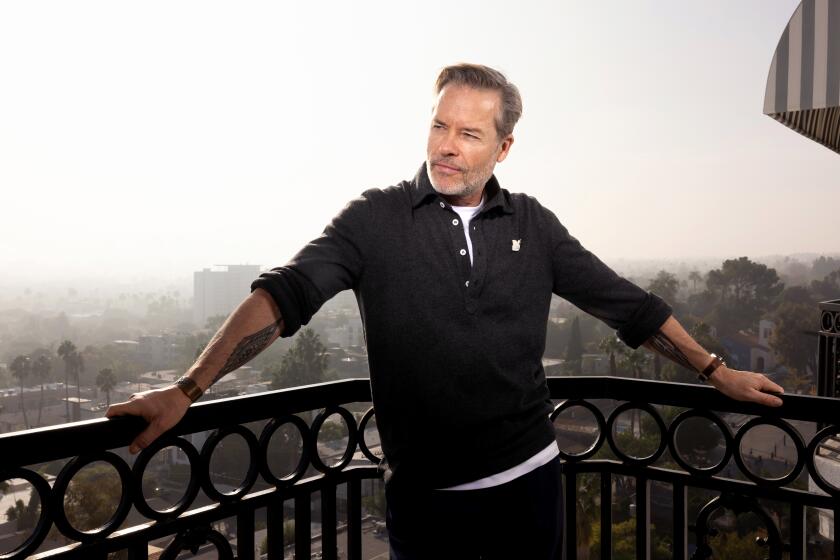Classic Hollywood: Retelling Ingrid Bergman’s life ‘In Her Own Words’ via diaries, home movies
Veteran Swedish filmmaker and author Stig Björkman met actress Isabella Rosselini at the Berlin Film Festival in 2011. During a casual conversation, the daughter of Ingrid Bergman turned to Björkman and said “shall we make a film about mama?”
“I was surprised but honored; of course, I said ‘yes,”’ Björkman said.
Four years later, “Ingrid Bergman: In Her Own Words” opened to strong reviews at the Cannes Film Festival, where it received special mention in the Golden Eye category. The documentary arrives Dec. 11 at the Nuart Theatre in West Los Angeles.
SIGN UP for the free Classic Hollywood newsletter >>
Those Bergman aficionados expecting a documentary that explores the craft of the Swedish actress who received seven Oscar nominations and three Academy Awards (“Gaslight,” “Anastasia” and “Murder on the Orient Express”) may be disappointed in “In Her Own Words”
But if you want to know about Bergman the woman, “In Her Own Words” is touching, funny and poignant. It features her diaries, letters, photographs and amateur home movies, and candid interviews with her four children: Pia Lindstrom and Roberto, Isabella and Ingrid Rossellini. There’s also a plethora of clips from her films, including her Oscar winners as well as 1939’s “Intermezzo,” 1942’s “Casablanca,” 1946’s “Notorious” and 1950’s “Stromboli,” the first film she made with her second husband, Roberto Rossellini.
“She was a hoarder,” said Lindstrom. “Stig probably started out thinking he was going to do a film more about her work, but we happened to have such a treasure trove of home movies. I think he was quite surprised when he went into the basement and came out with boxes and boxes of films.”
Considering her vagabond existence, Björkman is amazed that Bergman, who died in 1982 on her 67th birthday, managed to hang on to it all. “She moved so many times, from Sweden to Italy, then to Paris and then London, and she brought it all of it with her.”
Björkman believes the actress held on to everything because of her tragic childhood. Her mother died when she was 3. Bergman was raised by her father, Justus, who owned a photography shop, until his death when she was 12.
“She was almost alone in the word at the age of 14 when the movie starts,” said Björkman. “This was all very dear to her. She wrote diaries over 20 years and wrote letters to friends. I had seven or eight hours of her own home movies.”
It was her father, said Lindstrom, who started her mother out “posing and smiling and flirting and putting on costumes in front of a camera. I think she looked at the lens and saw somebody who loved her. She fell in love with men who looked at her through the lens.”
Married and the mother of young Pia when she arrived in Hollywood in 1939 and signed a seven-year contract with über producer David O. Selznick (“Gone With the Wind”), Bergman had affairs with Gary Cooper, photographer Robert Capa and Victor Fleming, who directed her in 1941’s “Dr. Jekyll and Mr. Hyde” and to an Oscar nomination in 1948’s “Joan of Arc.”
Hollywood and her fans turned against her when she fell in love and had a son out of wedlock with Italian director Rossellini. They made five films together during their seven-year marriage.
Bergman made a strong comeback in Hollywood, winning her second lead actress Oscar for 1956’s “Anastasia,” leading her to say her image went from “saint to whore and back to saint again.”
The actress was not a conventional mother. Though Lindstrom says in the film that her mother was fun to be with, she noted in conversation that her mother was “not maternal. She didn’t do that. She was a great friend. She was fun. Not everyone is maternal. She never lived in the same country with her children. Even at the end of her life, she had one son who lived in Paris and three daughters who lived in New York. She decided to live in London.”
Bergman never had any misgivings about her life choices.
Bjökrman’s favorite quote from Bergman in the film is when a reporter asks her upon her arrival in the U.S. in 1957: “‘Miss Bergman, do you regret anything in your life?’ She is smiling and radiant toward him and says, ‘No, I have no regrets for what I have done. I only regret the things I haven’t done.”’
More to Read
Only good movies
Get the Indie Focus newsletter, Mark Olsen's weekly guide to the world of cinema.
You may occasionally receive promotional content from the Los Angeles Times.











